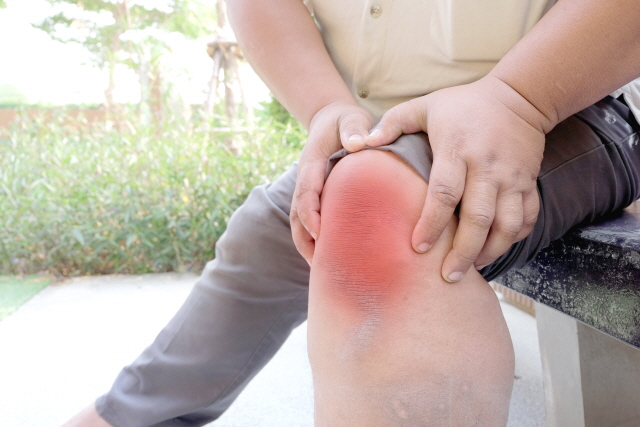
Urinary problems, edema, and dizziness are the indication of the herb
By Hyunchang Cho, L.Ac., Ph.D ([email protected])
Zhu: Symptom Indicator Score+++, Frequency of Use +++,
-Main Symptoms: ①Urinary frequency and retention ②Edema (pitting edema along the tibial line) may be present ③Dizziness and heavy-headedness
-Possible Symptoms: ④Body pains and swelling
- Pharmacological Hypothesis of Zhu
Decrease in water absorption and excretion, Urogenital dysfunction (especially bladder) → Urinary problems such as frequent urination, incomplete bladder voiding, nocturnal polyuria, oliguria, and urinary hesitation → Water retention (extracellular fluid → interstitial and cavity fluids)
Various symptoms arising from water retention: Edema (body surface), Joint pain and swelling (joint cavity and surrounding tissues), Heavy-headedness (CSF in the cranial cavity), Auditory disorders such as tinnitus, hearing loss, and hypersensitive hearing (vestibular organ), Visual impairment such as ocular hypertension, poor vision, and eye floaters (aqueous humor in the eye)
Also: Mild indigestion and diarrhea (GI tract), Spermatorrhea (men) and leucorrhea (women) (reproductive organs), Irritable uterus in pregnancy (uterus and other urogenital organs)
Zhu’s symptoms are caused by the following:
Decreased water absorption and excretion → Dysuria → water retention in various areas → Increase in extracellular fluids (interstitial fluid and especially cavity fluid) → edema, dizziness, heavy-headedness → also body pain, tinnitus, hearing problems, hearing loss, ocular hypertension, poor vision, eye floaters, mild indigestion, soft/loose stools, diarrhea, spermatorrhea, leucorrhea, irritable uterus and such
Zhu’s symptoms are related to water metabolic dysfunction, including poor functioning of the urogenital organs, especially the bladder. Also related is decreased water absorption at the interstitial fluid level and the GI tract.
- Urogenital Dysfunction: Decreased water absorption and excretion and poor functioning of the urogenital organs, especially the bladder, will induce Zhu’s symptoms of urinary problems, such as frequent urination and incomplete bladder voiding. Sometimes, they can also manifest as nocturnal polyuria, oliguria, or urinary hesitation.
Frequent urination is the need to urinate more often than usual (generally more than 6 to 8 times a day). Nocturnal polyuria happens for the same reason.
Oliguria is the medical term for decreased urine output. We call it oliguria when the daily (24hr) urine output is less than 400ml, or 13.5 ounces. Oliguria is caused by poor functioning of the bladder as well as other urogenital organs, leading to weak urine output.
Incomplete bladder voiding is the sensation that the bladder didn’t empty after micturition due to a poorly functioning bladder. But in clinical practice, patients may be unaware of such urine output decrease and say their urine output is normal.
Urinary hesitation is when someone has trouble starting or maintaining a urine stream. It seems to be caused by poor micturition due to weakened bladder muscles.
- Water Metabolic Dysfunction: Water metabolic dysfunction seems to cause water retention by increasing the volume of extracellular fluids (mostly interstitial and cavity fluids). As symptoms, it can manifest as edema, dizziness, body aches and such.
- Clinical Signs of Zhu
(1) Main Symptoms: We can consider Zhu if more than 1 of the following three symptoms are present: 1) Frequent urination and feelings of residual urine, 2) Edema (pitting edema along the tibial line), 3) Dizziness and heavy-headedness
1) Urinary problems of Zhu are mainly manifested as urinary frequency and incomplete bladder voiding. Also possible are nocturnal polyuria, oliguria, urinary infrequency, and urinary hesitation.
-Clinical Expressions: Frequent urination with more than nine times during the daytime or infrequent urination with less than 3-4 times during the daytime.
-Clinical Expressions: I feel residual urine or incomplete bladder voiding after micturition.
Sometimes urinary hesitation may appear.
-Clinical Expressions: The urine stream is not strong and comes out gradually, drips, or stops intermittently.
With Zhu patients, urinary problems will easily appear when their condition is low. Stress, overwork, or fatigue will easily give rise to urinating issues. Urinary frequency, feelings of residual urine, incomplete bladder voiding, nocturnal polyuria, infrequency and such would be induced or aggravated by poor body condition.
-Clinical Expressions: When I don’t feel well, I often have urinating problems.
Administering Zhu formulas would treat symptoms that arise from Zhu’s urinating problems. But the urinating issues would be treated in the process or remain the same. Suppose the discomfort level is severe enough to be included in the patient’s chief complaints. In that case, they will usually be treated with Zhu formulas. But if the discomfort level is mild, they will likely remain the same. Still, overall symptoms caused by urinating problems would be treated in most cases.
2) Edema will be present in some cases. External signs of Water Edema (mentioned below) would be present. If the level of edema is severe, pitting edema along the tibial line may also appear.
* External Signs of Water Edema: ①Pitting edema along the tibial line ②Puffy face ③Easily swells ④Standing or walking will induce leg swelling ⑤Sock marks ⑥Shoes become tighter ⑦Rings won’t come off in the morning
3) Zhu seems to treat dizziness and vertigo.
Zhu’s dizziness and vertigo may include dizziness, heavy-headedness, and impairment of the five senses such as sight, hearing, tasting and such.
-Clinical Expressions: Changing posture of the head: a sudden turn of the head or standing up from a sitting down position will often trigger/worsen dizziness.































